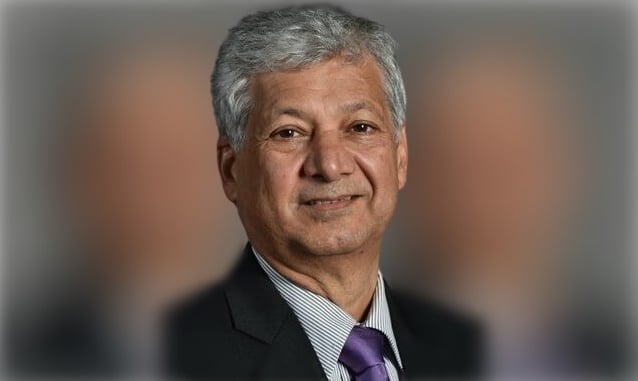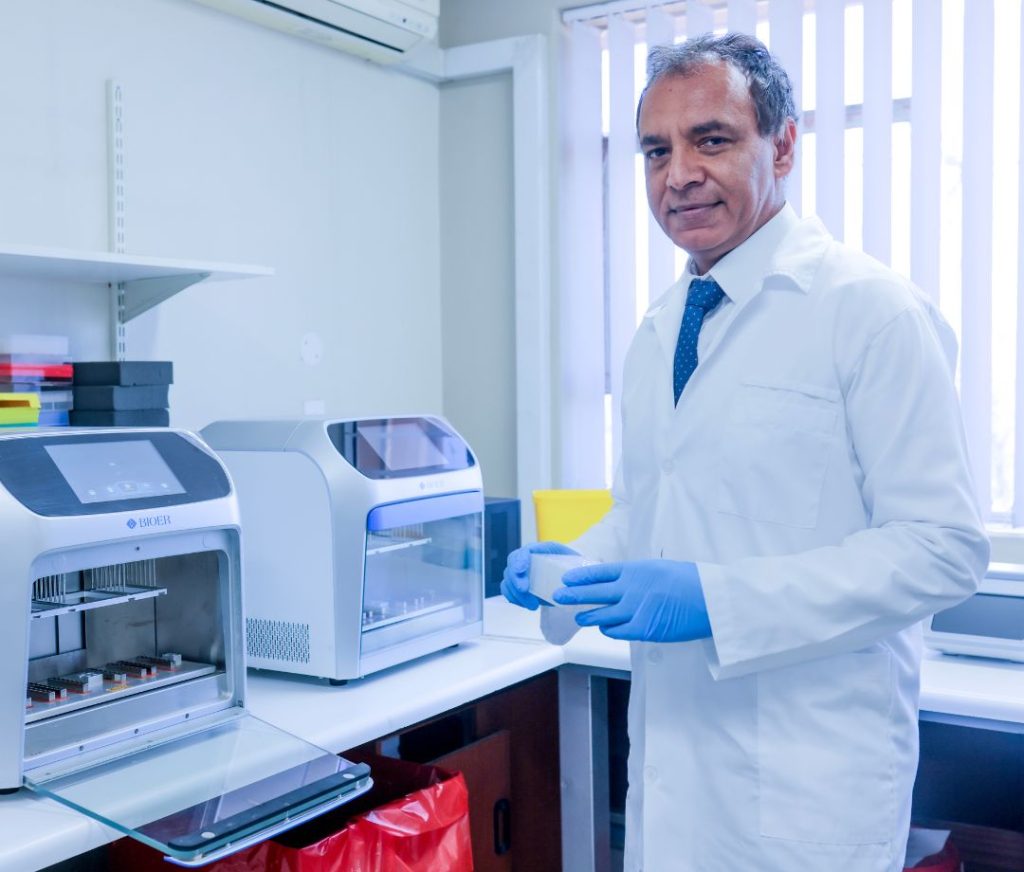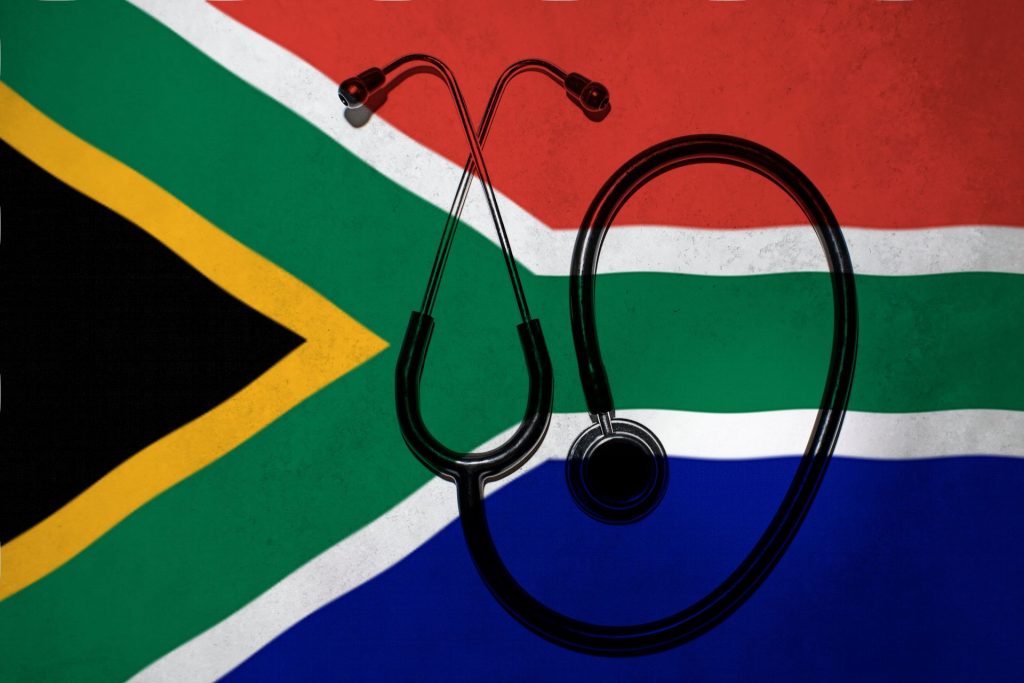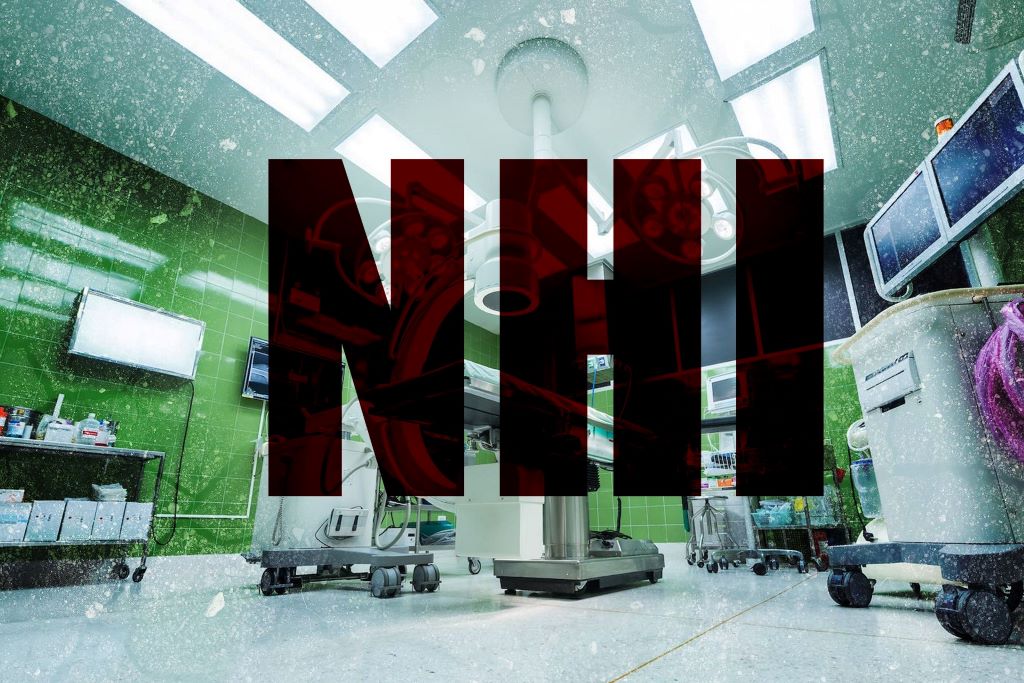At the Heart of the NHI Lies Fairness: Outgoing Chair of Parliament’s Health Committee Defends Record

By Biénne Huisman
The chairperson of the National Assembly’s Portfolio Committee on Health Dr Kenneth Jacobs played a pivotal role in deliberations on the National Health Insurance Bill. Spotlight’s Biénne Huisman asked Jacobs about some criticisms of NHI and about his plans for life after Parliament.
A week before South Africa’s sixth democratic Parliament drew to a close on May 21, chairperson of its Portfolio Committee on Health, Dr Kenneth Jacobs, observed President Cyril Ramaphosa sign the National Health Insurance (NHI) Bill into law at the Union Buildings in Pretoria.
Back in Cape Town, Jacobs tells Spotlight the NHI signing was the culmination of his own work dating back fifteen years. He says he started working on public health projects relating to universal health coverage and the NHI in 2009, as a consultant to the National Department of Health.
For him, at the heart of the bill lies fairness.
“We should be able to provide all of the people of South Africa the opportunity to access quality healthcare,” he says.
Jacobs entered Parliament as an ANC MP in 2019, and two years later was elected chairperson of the Portfolio Committee on Health after his predecessor, Dr Sibongiseni Dhlomo, became the Deputy Minister of Health. Committee chairpersons are elected by and from among the members of each committee, meaning the majority party in Parliament has the most influence in selecting chairpersons.
As chairperson, a large part of Jacobs’ job was to hold the country’s executive and the National Department of Health to account on behalf of South Africa’s citizens.
Amongst other tasks, he played a pivotal role in overseeing public deliberations around the NHI Bill, which included 338 891 written submission and presentations by 133 organisations. These included political parties, trade unions, medical aid schemes, health technology organisations, the South African Medical Association, and university departments.
“It is never in the history that the committee had such an engagement by the public,” says Jacobs. “So I’ve been very blessed and fortunate to go to Parliament in the final process of the NHI Bill.”
‘Disheartening’ criticism
Both before and after its signing into law, NHI has been deeply divisive, with several political parties and other role players threatening litigation. One line of criticism is that, while many people and organisations made submissions to the committee chaired by Jacobs, the final bill did not changed substantially from what it was prior to the public hearings.
Interviewed on the topic, Business Leadership South Africa CEO Busi Mavuso, said government rushed populist policy through Parliament – an electioneering ploy – as the significant public input into the Bill and its socioeconomic ramifications had not been considered.
Jacobs voices his frustration at such criticism of the NHI public participation process, saying it is “disheartening”, adding that criticism are doled out by South Africans who are “in better financial positions”.
He explains the process of collating so much information: “Well, firstly it’s driven by the chairperson [him]… We appointed a team through Parliamentary processes, who looked at the submissions, and interpreted the submissions using computerised systems. It’s thematic – what are the themes, really? These are developed into reports; the reports on all the public hearings, those reports are all available.”
He adds: “So people who want to write and say all these negative things, they really should go and access these documents and see what the submissions were.”
‘It’s attractive to make people insecure’
Another aspect of NHI over which many have expressed concern is the potential for corruption, particularly in light of massive healthcare corruption during the height of the COVID-19 pandemic and more recent alleged corruption at Tembisa Hospital in Gauteng. Here criticism ranges from a simple distrust in government to run such funds, to more nuanced criticisms of aspects of the bill that critics say increases the risk of corruption – such as the Minister of Health’s expansive powers and accountability to cabinet rather than to Parliament.
In an interview following the signing of the bill, DA Chief Whip who was also a health portfolio committee member, Siviwe Gwarube, said: “The NHI will not address the underlying issues in our healthcare system; it is financially unfeasible, an election gimmick, and will burden South Africans with increased taxes.” She added: “The potential for corruption is staggering, and the flawed parliamentary process further erodes public trust…”
When asked about fears that money might disappear from centralised NHI coffers – to be governed by a board appointed by the minister of health – and accountability to prevent such, Jacobs says: “I think that people are putting the cart before the horse. You must remember this will be an entity [with tender procedures], and then who is supposed to appoint them [board members] in any case? Somebody has to have the responsibility. Why can that not be the minister, for example. But remember that it will be a transparent process, the same as the appointment, I think, as what we do with the appointment of judges.”
The NHI fund will be a schedule 3A entity, similar to, among others, the Road Accident Fund, the National Lotteries Commission, the National Laboratory Service, the Office of Health Standards Compliance, the Competition Commission, and the Council for Medical Schemes.
Jacobs says checks will be provided by the country’s forensic investigation agency, the Special Investigating Unit (SIU). “And there are many ways to put checks and balances into place,” he says, “we talk [in the bill] about the interventions which can be made, or the investigations which can be made by the SIU and other law enforcement agencies”.
Shortly after taking over as health committee chairperson, Jacobs told Spotlight that rooting out corruption in the health sector was a priority. At the time, he stressed the importance of safety nets for whistle-blowers, and of establishing systems to enforce accountability. Around the time of his appointment in 2021, whistle-blower Babita Deokaran was murdered for exposing R1 billion worth of allegedly irregular tenders issued at the Tembisa Hospital in Gauteng.
Asked about these particular earlier priorities, Jacobs responds: “I have no answer on that, I don’t think I want to talk about corruption now…” Upon reflection, he adds: “Of course corruption is important. Losses to the fiscal is important; people doing wrong is important. People need to be brought to book, be held accountable for doing wrong…”
Later on in the interview, when the issue of corruption comes up again, he says that corruption has decreased in South Africa: “I think we’ve advanced quite a bit from the time when corruption was more rife. I think nowadays you hardly hear about these things and it’s because unprecedented intensive programmes were put in place to address these issues of corruption and fraud. I really think what they [critics] are doing is fear-mongering, telling people that you need to be frightened, and I’m going to say again, those who are telling others to feel frightened, are in a better financial position. So it’s attractive to make people insecure.”
Money for NHI?
Another common argument against implementing NHI is that it is not affordable. Government’s spending on health has declined in real terms for much of the last decade and the South African economy is struggling by most measures.
Asked about crippling budget cuts in the health sector as it stands, and questions around the NHI’s affordability, Jacobs says South Africa has insufficient central funds because of unemployment, and that South Africa needs more jobs and more workers to increase its tax-base.
“My personal view is that we need to understand why there’s a budget problem,” he says. “So where is government supposed to get money? Who are supposed to contribute? Those who are employed. And look at our employment rate – is it government’s responsibility? No, the emphasis is wrong. It is businesses’ responsibility.
“When people have employment they can contribute to the coffer… and I’m going to keep on saying, the narrative is in the wrong place. We need to say to South Africans: ‘don’t all of us have a responsibility?’ Those who have the economy in their hands and those who don’t have the economy in their hands, all of the responsibility to drive our country forward.”
How to drive South African healthcare forward, remains contested. Several organisations representing healthcare workers, such as the South African Medical Association, do not support the NHI Act in its current form. Others, including the South African Medical Association Trade Union, welcome it.
Meanwhile, Jacobs expresses empathy for his clinician colleagues: “As a medical doctor, I have absolute respect for all of my colleagues. I would like you to write it; I understand the conditions under which our medical and or health personnel have to function. And I don’t think that National Health Insurance be a negative thing for healthcare professionals.”
‘Why should there be people who profit from the ill health of other people?’
Another concern in some quarters is that NHI will over time squeeze out medical aid schemes and leave people with no alternative to health services provided through NHI. This because, according to Section 33 of the NHI Act, medical schemes will not be allowed to cover services that are already covered by the NHI fund.
Asked about the future of medical aid schemes in South Africa, Jacobs says: “What is the medical aid system? It’s a profit driven system by people who are in business. Is it correct that there are people who make profit off the lives of people, and the health of people? I don’t think that is correct.” (Note: Medical schemes are non-profit entities while medical scheme administrators are for-profit.)
He adds: “What is wrong with having one single system, in which everybody has access to the same healthcare? Why do we need to keep exclusionary rights for some people, based on them having a better income than others? I think that’s the bottom-line on the answer of the medical aid. Whether medical aid will stop functioning or not. I think that’s not the question to ask. The question is why should there be people who profit from the ill health of other people?”
‘From policy to practice’
Going forward, given that he won’t be returning to Parliament, Jacobs hopes to resume doing public health consulting work for the National Department of Health.
“I have a project which is very dear to me,” he says. “I want to start an institute for health governance, and it’s called, ‘from policy to practice’. It’s on health governance, universal health coverage… and will be instrumental in influencing dialogue. So, I can’t wait to stay active in the health sector, but not being restricted in that I’m no longer a member of Parliament, not feeling that there’s some sort of conflict.”
Jacobs will now move from the Acacia Park Parliamentary Village on Cape Town’s northern fringes back to his family home in Wellington.
Jacobs says that they will soon have seven public health doctors in his family – that is, when his son completes medical school at Stellenbosch University. His daughter recently finished medical school and is contracted as a doctor at a clinic in Khayelitsha.
Originally from Gqeberha, Jacobs holds a Bachelor of Medicine and Bachelor of Surgery degree from Stellenbosch University where he also obtained a Master of Medicine degree in family medicine. He went on to get a Master of Science degree in sports medicine from the University of Pretoria. In earlier years, he served as a physician to the Stormers and Springbok rugby teams.
In the previous interview with Spotlight, Jacobs relayed how his formative years were tough. His family were forcibly evicted from sea-facing South End, in what was then Port Elizabeth, and moved to Gelvandale, in the city’s northern suburbs. His father worked in a shoe factory, but lost his job when Jacobs was in grade 10.
“South End was like Port Elizabeth’s District Six,” said Jacobs, in the earlier interview. “So yes, honestly, that was something that had a huge impact on me. I decided then that I would not allow somebody to suppress or oppress me and I think it is probably why I just kept on studying and improving.”
At 65 years old, Jacobs exudes ambition and enthusiasm. Wrapping up, he quotes an Afrikaans aphorism: “Die mens wik maar God beskik” (Humanity proposes, God disposes).
Republished from Spotlight under a Creative Commons licence.













